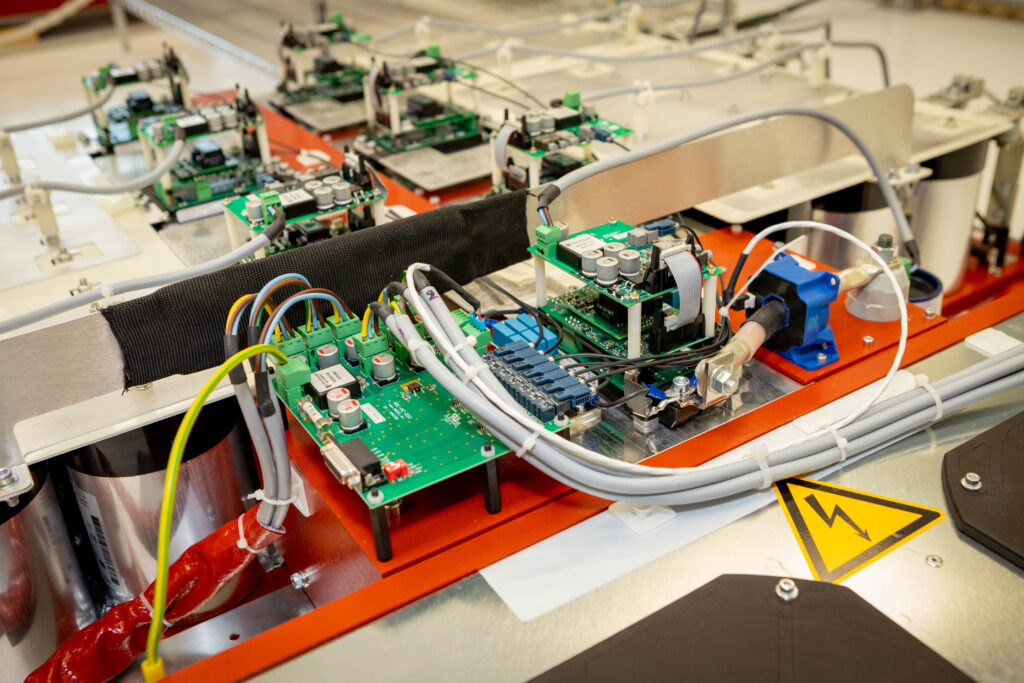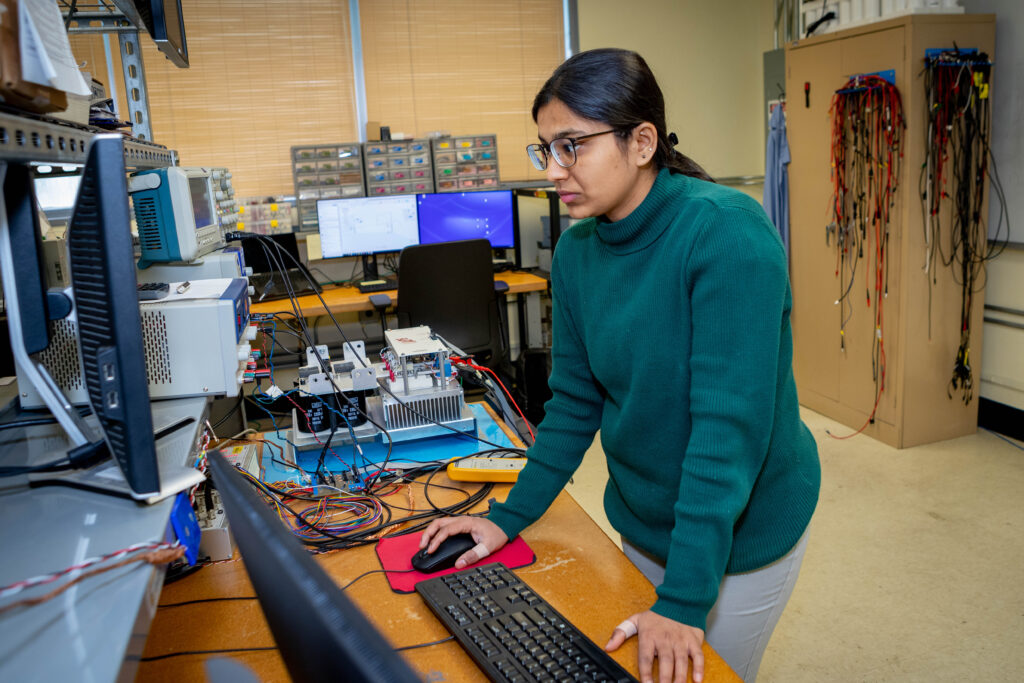By Ben Donohue & Olivia Ortegon
Each year, the U.S. Department of Defense (DoD) awards funds for research in higher education through its Defense University Research Instrumentation Program (DURIP). In 2018, Dr. Ali Bazzi, from UConn’s Center for Clean Energy Engineering and Electrical and Computer Engineering department, received a DURIP award for his project, “High-voltage High-frequency Power Electronic Testbed for Naval Propulsion Drives Research.” He has since been working in his DURIP lab in UConn’s Center for Clean Energy Engineering, where he has created his own unique testbed, a platform used for testing electric machines, insulation material, cables, control methods, and health monitoring techniques.
What makes this an exciting project is this new testbed features an inverter that has never been created before. It is able to convert 7.2 kilovolts DC to AC at any desired voltage, within a certain range. It can also handle up to 100 kilowatts of power using SiC semiconductor technology.

Part of the DURIP testbed
No one has developed an inverter with the same qualifications, and it has proved to be a monumental task. When asked about any challenges he had faced over the past three years, Dr. Bazzi mentioned that finding the right people willing to build this special equipment was the biggest difficulty. He and his team reached out to five different industry leaders with experience building medium-voltage converters, but none of them were up for the challenge due to extremely high engineering costs. However, Dr. Bazzi finally found his match: Cougar electronics, a Connecticut company that specializes in high-power electronics, was able to design and ship out the equipment using the help of its parent company in France, ARCEL. Another challenge was dealing with the pandemic. DURIP projects tend to take about one year, but due to delays in shipping and reduced lab capacities, this project has taken three years to come to fruition.
Despite the challenges, Dr. Bazzi has seen great success. He mentions that his biggest accomplishment over the past three years was bringing this setup to UConn where he can conduct research to help enhance power electronics and motor drives in a variety of applications. Furthermore, Dr. Bazzi is excited how this project can benefit the Department of Defense (DoD) and how it can be used to evaluate and improve propulsion drives, which can be then utilized in naval applications. In evaluating propulsion drives, this project can be a game changer for designing and evaluating electric motor drives as well as increasing UConn’s visibility and capability in high end power research.
Regarding the role Dr. Bazzi’s research plays in educating students about the DoD, he explained how his students in his power electronics, electric machines, and drives courses can apply this knowledge and experience to aerospace, marine, and automotive applications as examples of the importance of machine drives and power electronics. Dr. Bazzi introduces his students to the evolution of transportation systems such as Navy ships and submarines, the aviation industry slowly switching to air taxis and more-electric aircraft, and the automotive industry shifting towards electric and hybrid cars. By doing this, Dr. Bazzi teaches his students to understand the benefits, challenges, and future of power electronics and how they can apply this knowledge in their careers outside of UConn.

Arshiah Mizra, Ph.D. student working in Dr. Bazzi’s Lab, is setting up controls for the DURIP program
Center for Clean Energy Engineering
44 Weaver Rd., Unit 5233
Storrs, CT 06269-5233
Telephone: 860-486-9204
Facsimile: 860-486-8378